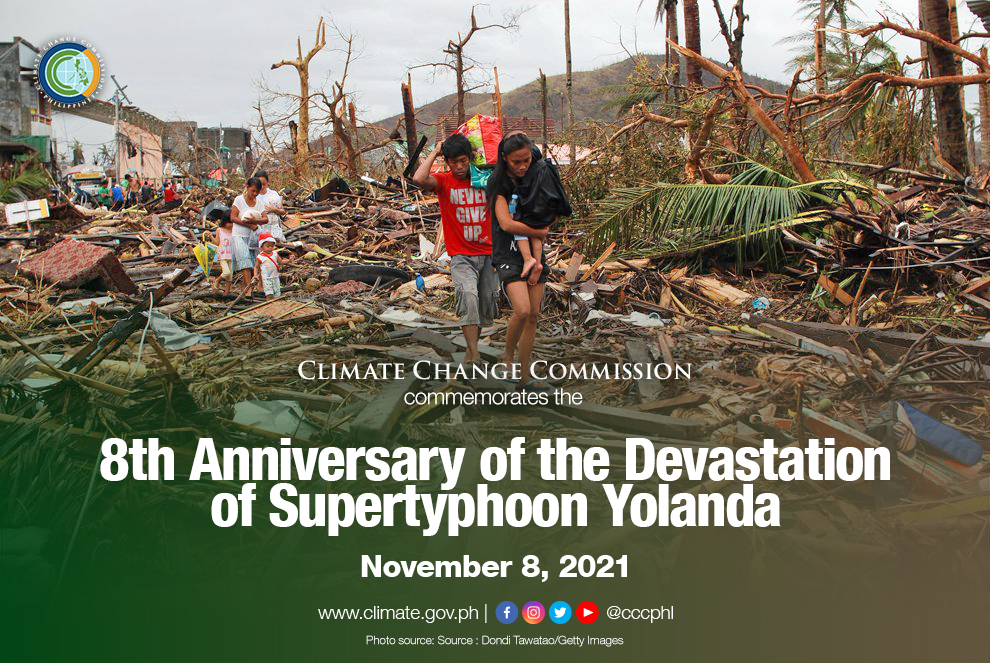
November 07, 2021 Sunday

MANILA, 8 November 2021 — The Climate Change Commission joins the nation in commemoration of the 8th anniversary of the devastation of Super Typhoon Yolanda (international name: Haiyan) today, November 8, and calls for stronger anticipatory adaptation action to protect the lives of Filipinos as climate risks worsen.
“Eight years on, Yolanda remains a powerful reminder to strengthen our anticipatory adaptation measures to protect Filipinos amid worsening climate risks, and make sure they and future generations will not have to suffer like our people did in 2013,” said the Commission.
This year’s commemoration comes as the world is in deep talks at the 26th Conference of Parties to the United Nations Framework Convention on Climate Change in Glasgow, Scotland. COP26 has been touted as a critical climate summit, especially with the past decade emerging as the warmest on record and with more extreme weather events including typhoons, heatwaves, floods, and forest fires worsening all over the world because of the effects of climate change—effects that disproportionately impact climate-vulnerable countries like the Philippines.
The climate body said that “The latest climate science shows that the coming climate change impacts can be even more frequent and more severe for vulnerable countries like the Philippines, ranked as 4th in the 2021 Global Climate Risk Index of countries most affected by climate-related disasters in the last decade. To be proactive in protecting the lives and livelihoods of Filipinos at the local level, we must build up scientific knowledge on local hazards in our communities to develop risk-adaptive measures. For every coastal community, we must know the risk of storm surge that may go inland and submerge homes, farmland, and other properties. Early warning systems will only be effective if they are actionable, and this means they must consist of understandable information down to the last mile."
Anticipatory or proactive adaptation refers to measures that must take place even before the impacts of climate change are observed, instead of simply reacting to them. Aside from building knowledge on local hazards and strengthening early warning systems, other possible measures include setting new building codes and design standards to address likely hazards, providing incentives for relocating and retrofitting, purchasing insurance and other social protection to cushion losses and unemployment, and adjusting housing conditions to extreme weather events.
Reports from the National Disaster Risk Reduction and Management Council estimate that Yolanda, which made a total of six landfalls from November 8, 2013, affected over 16 million and displaced 5.1 million people, and caused over P95 billion in damages. One of the strongest tropical cyclones in world recorded history, it left 6,300 dead, more than 1,000 missing, and over 28,000 injured in all affected areas.